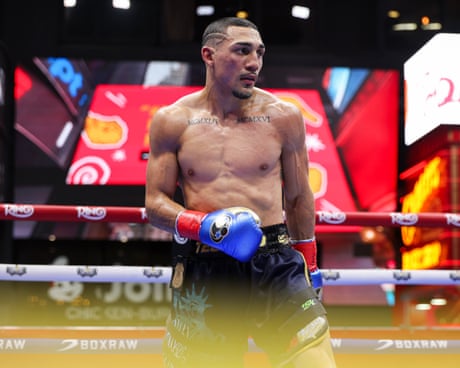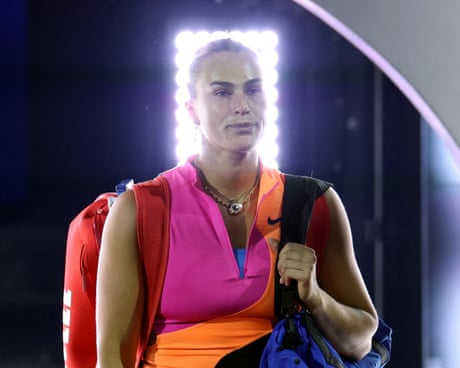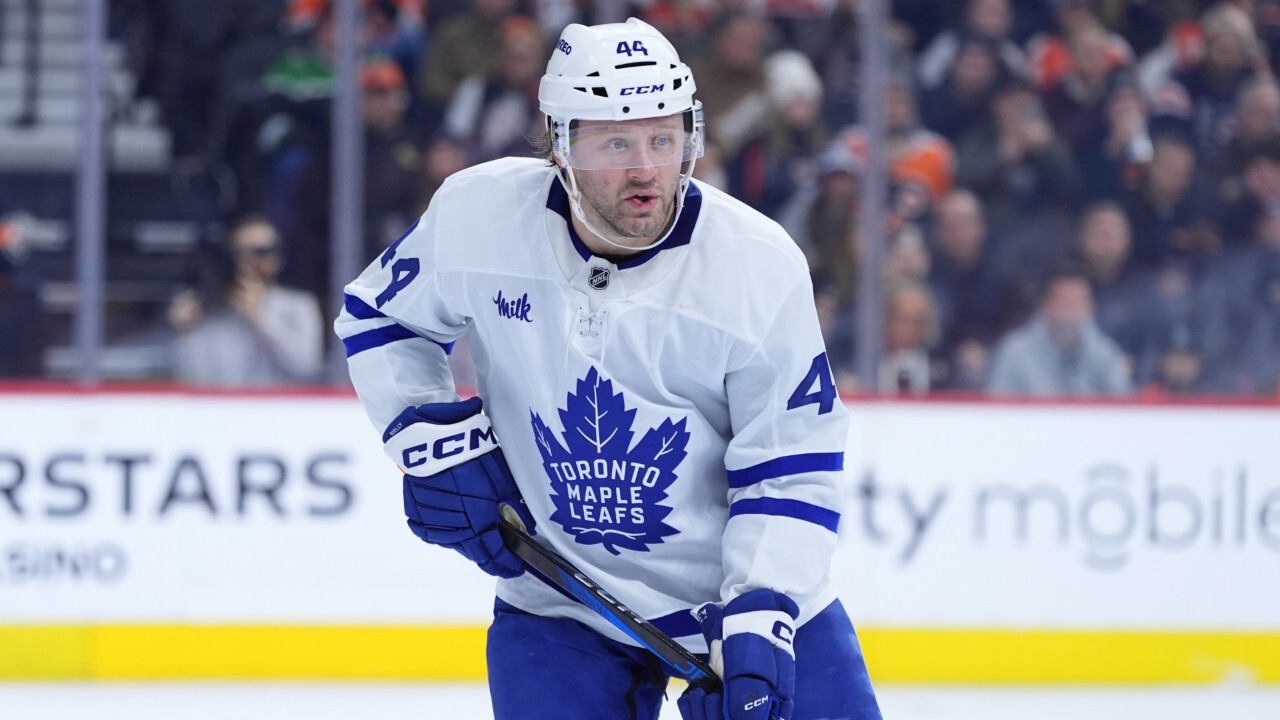
Blowouts continue to be a story of these Stanley Cup Playoffs, following a night where all four games were decided by three goals or more. Just four of the 28 games played so far have been decided by one goal, two of which went to overtime.
Eventually it’s going to get tighter again, you’d think, and the deeper we get in to these Round 1 series, the more urgent the play will be.
On Monday night, one team has a shot to be the first through to the second round, while three others look to take 3-1 strangleholds. Here’s a look at the four games on tap.
Can Johnny Gaudreau find a way to score as pressure mounts?
It’s important to start with this: Johnny Gaudreau hasn’t had a bad series. He’s not Reason 1 to blame for Calgary’s 2-1 series hole against Dallas.
He and Matthew Tkachuk are tied for the team lead with two assists each. That’s good for the team points lead, too. In Game 3, Gaudreau came through with a strong effort, recording a primary assist on Elias Lindholm’s second period go-ahead goal.
But what sticks in your mind is Gaudreau’s breakaway in the final minutes of regulation with the Flames down by one. It was his chance at a huge momentum-shifting goal and in a series where quality ice in front of the net has been very hard to come by with puck control, it was a crucial moment.
Jake Oettinger made the stop.
Gaudreau had the best season of his career this year, will get Hart Trophy consideration and may be a top-three finalist for the award. He had one of the best offensive seasons in Flames history with 115 points, and was one of three 40-goal scorers on the team, reaching that milestone for the first time. A pending UFA this summer, Gaudreau and the Flames have talked about wanting to stick together, but it’s always kind of been complicated.
The cap picture is tight, with RFAs Tkachuk and Andrew Mangiapane also factoring in this off-season. Gaudreau projects to make at least $8.5 million on his next contract, if not $9-9.5 million. If he hits the market and goes to the highest bidder, going over $10 million isn’t crazy to suggest.
But also part of the narrative of his time in Calgary has been about playoff disappointment, and Gaudreau’s inability to find a way through and be a big player in big moments. His performance in this playoff run could be hugely influential in any decision about what happens next between him and the team.
Entering Game 4 (9:30 p.m. ET / 6:30 p.m., PT, Sportsnet), the need for a big-moment player is increasing.
“I’d rather have a guy who scores a big goal than a guy that scores 40,” Flames coach Darryl Sutter said Sunday.

This is the tightest series defensively and the Flames have just three goals (Gaudreau has factored in on two of them). What they really need is a semblance of offence from any line, or for their power play to do better than 8.3 per cent. What will be talked about most is the first line if it doesn’t produce and the Flames fall behind 3-1.
While that trio has controlled most of the shot attempts at even strength, their expected goals percentage is below 50, the worst of any Flames line, and they’ve been narrowly outscored. There is no margin for error in this series.
“We’re doing a lot of things we’ve done all year, we’re just not getting the results. But in a series, you gotta get results or you run out of real estate,” Sutter said.
Gaudreau has been a Flame longer than anyone else on his line. He’s seen the playoff disappointments here, and sometimes had to be the face of it. And while he’s had a pretty good series in the tough draw that is Dallas, “pretty good” isn’t going to be what’s remembered if Calgary does get upset in Round 1.
Only the big moments will be.
“Just stick with it, it’ll come,” Gaudreau said.
Will the Avalanche finish off the Predators?
Speaking of the Flames, Sutter may just be right in a prediction he made about Colorado’s first-round series two months ago, calling it “a waste of eight days” for whichever unlucky wild-card team got the Avalanche.
The Nashville Predators are teetering on that result, down 3-0 heading into Game 4 (9:30 p.m. ET / 6:30 p.m., PT, Sportsnet ONE).
Colorado has the chance to be the first team through to the second round, where the Avalanche would await the winner of Minnesota-St. Louis, which is turning out to be an odd back-and-forth exchange of blowouts. It has to be a six-gamer at least, leaving the Avs with some time to rest up and get goalie Darcy Kuemper back to full health.
This has just been a mismatch, made worse by the fact Nashville lost its game-changing goalie Juuse Saros just before the playoffs started. While Connor Ingram put up a heck of a fight in Game 2, turning aside 49 straight shots in an OT loss, Game 3 brought the reality check 7-3 result in Colorado’s favour.
The Avs are the playoff leaders in shot attempts and shots for percentage (both over 60) at 5-on-5 and have outscored Nashville 16-6 overall — no one has outscored their opponent by a greater margin. Colorado’s power play is humming at a league-best 42.9 per cent. Cale Makar has seven points to challenge for the league playoff scoring lead, Nathan MacKinnon is just off the league pace with four goals, as is Mikko Rantanen with five assists.
Their only concerns might be a 72.7-per-cent penalty kill and Kuemper’s Game 3 eye injury when Ryan Johansen’s stick accidentally slipped through his mask. Pavel Francouz will start Game 4, but the hope was that Kuemper could still play Game 5, or be back for the next series.

How will Igor Shesterkin respond to the Game 3 pull?
New York’s goalie had a nearly perfect season.
There were pretty much no soft spots in Igor Shesterkin’s resume until March. He hadn’t had a month with a sub-.920 save percentage from October through February. He had allowed more than three goals in a game just three times in those first five months and hadn’t been pulled for performance reasons at all. There was a sparkling case for his place in the Hart Trophy conversation.
In March we saw the first signs that he is, in fact, human.
Against the St. Louis Blues on March 10, Shesterkin was pulled due to performance for the first time, allowing four goals on 17 shots. Just 12 days later he was pulled again due to performance, allowing five goals on 24 shots against the New Jersey Devils.
Goalies, of course, are allowed to have moments like that in an 82-game season, and frankly, it’s astonishing how few “bad” games Shesterkin had all year. In the playoffs, the Rangers are counting on their 26-year-old to be a difference-maker and patch up some of the gaps left by the team’s middling puck control statistics. So the fact Shesterkin allowed four goals on 15 first-period shots and was pulled in Game 3 against the Pittsburgh Penguins has to be at least a little unsettling.
With the Penguins down to their third-string netminder, this is an area that should be a decisive advantage for the Rangers, and another outcome like that from the team MVP in Game 4 (7 p.m. ET / 4 p.m. PT, Sportsnet) could doom their season. Shesterkin, who was not to blame for the loss, needs to bounce back ASAP. He’s their series-stealer.
So how did he respond to the few pulls he got in the regular season?

Following the pull against St. Louis, Shesterkin returned to the net two nights later versus Dallas and allowed two goals in the opening five minutes. He could have been on his way to another early pull had the Rangers not responded with four goals in the back half of the first period. In all, Shesterkin allowed four goals on 33 shots, but was never really at risk of losing the game thanks to New York’s offence — it was a 7-4 win for the Rangers.
And after the Devils game in which he got pulled, Shesterkin returned to the net three nights later against … the Pittsburgh Penguins. He faced just 21 shots, allowed one third-period goal, and won the game 5-1. The next start Shesterkin made after this one was also against Pittsburgh and though he allowed the game’s first goal, Shesterkin still saved 22 of 24 shots and led his team to a 3-2 win.
“I expect him to be outstanding. It’s a one-off for me,” Rangers coach Gerard Gallant said Sunday. “No reason blaming him. Our team was dominated in the first period. It’s nothing on Igor.”
Florida Panthers … gulp
Maybe there’s a curse of the rat?
Fair to say the Florida Panthers’ playoffs aren’t off to a great start. The ballyhooed offence has been kept to under three goals in two of the three games so far and is averaging 2.67 per game. They have the only power play that hasn’t scored yet, going 0-for-9. Sergei Bobrovsky, seen as the rickety step on the ladder, has been pretty good and Florida is finding ways to lose anyway. The 6-1 loss to Washington in Game 3 was the most alarming one yet, with bad penalties giving the Capitals twice as many power plays. There wasn’t enough push back when they let an early lead slide away.
“The intensity level is probably important and understanding every small little thing has a ramification in the game,” Panthers coach Andrew Brunette said. “And through the course of the three games we’re kind of losing in to that and it’s costing us some goals. And I think with our group too a little bit of the nervousness. We talk about it, still feels it’s lingering. We gotta get a little more angry, a little more intense for the full 60, every minute, every play.”
Nervousness? Lack if intensity to a full 60? These are usually the tell-tale signs of a team just not quite ready for a playoff breakthrough.

Historically speaking, there was reason to be pessimistic about the Panthers’ playoff hopes beyond questioning if their all-offence approach could translate. They were the best team in the regular season after all, and no Presidents’ Trophy winner has claimed the Stanley Cup since Chicago in 2013. So, could this be a Presidents’ Trophy curse, or is it something else?
Consider that of the past 10 Presidents’ Trophy winners that didn’t win the Cup, only two of them lost in Round 1: the 2019 Tampa Bay Lightning one year after reaching the conference final, and the 2012 Vancouver Canucks one year after reaching the Cup final.
An upset in Round 1 for Florida would cut deeper than either of those because this was the most hopeful season for this franchise’s fans in a generation. This was primed to be the first year they’d win a playoff round since 1996. That’s a 26-year drought of any playoff plusses for a fan base, folks. So this may be about more than the fact Presidents’ Trophy winners tend not to go four rounds — maybe Florida is dealing with the delayed curse of the rat Scott Mellanby ran into 26 years ago.
“We know our best hockey is yet to be played,” Sam Reinhart said.
Against a team with a weakness in net, and without the disturbing force that is Tom Wilson for the past two games, it’s terrifying the Panthers haven’t found their best version yet. If they lose again Monday (7 p.m. ET / 4 p.m. PT, Sportsnet ONE), they might not have time to find it.







